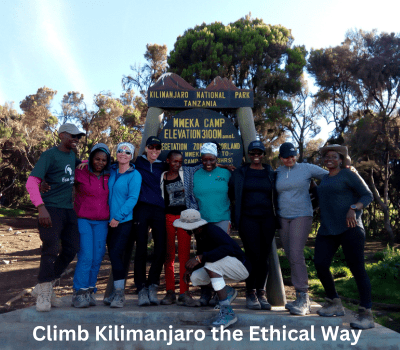What Should I Do If My Symptoms Worsen While Climbing Kilimanjaro?
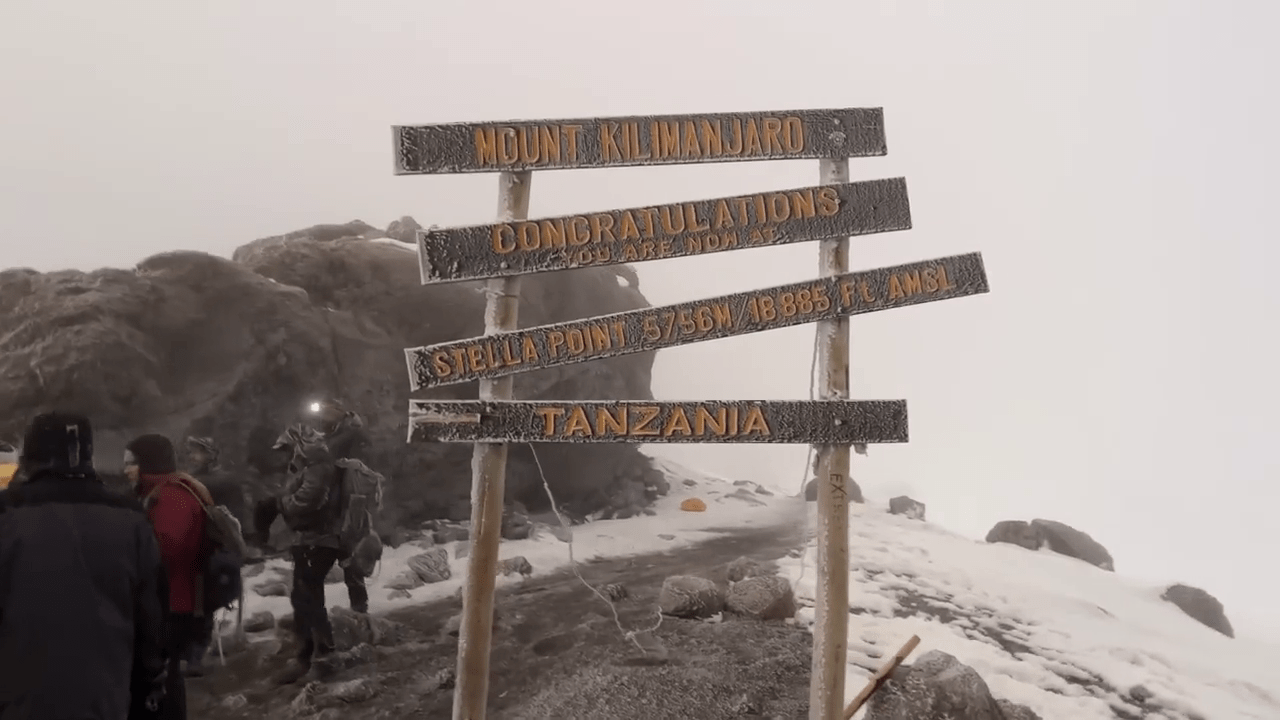
Climbing Mount Kilimanjaro is an unforgettable adventure — but it’s also a physical and mental challenge that shouldn’t be underestimated. At nearly 6,000 meters above sea level, the air becomes thinner, and the risk of altitude sickness increases significantly. While many climbers experience mild discomfort during their trek, it’s important to understand what to do if your symptoms become more severe. Acting quickly and responsibly can make the difference between a successful summit and a dangerous situation.
At Eco-Africa Climbing, your safety is our top priority. We’ve guided thousands of climbers to the summit while maintaining strict health protocols and emergency readiness. If your symptoms worsen during the climb, our professional, Wilderness First Responder (WFR)-certified guides will immediately take the right steps to protect your health and well-being. This guide explains what to look out for, what actions to take, and how we handle emergencies on the mountain.
Understanding the Challenges of High Altitude
Why Altitude Affects the Body
Altitude sickness, or Acute Mountain Sickness (AMS), is caused by your body’s response to the reduced oxygen available at higher elevations. As you climb, the air becomes thinner, meaning every breath delivers less oxygen to your bloodstream. This decrease in oxygen can affect every part of your body — especially your brain and lungs — and how it reacts varies from person to person. Even experienced hikers and athletes can be affected.
The most common cause of AMS is ascending too quickly without allowing your body time to acclimate. That’s why proper pacing, hydration, and rest are essential components of a safe climb. At Eco-Africa Climbing, our guides follow a “go slow” approach, giving your body the best chance to adjust naturally to higher altitudes.
Altitude sickness typically begins above 2,500 meters. Since Kilimanjaro’s summit is more than double that height, AMS is a legitimate risk on every climb. However, understanding the condition and how to manage it can help prevent mild symptoms from becoming life-threatening.
Recognizing the Early Signs of Altitude Sickness
Knowing the early signs of altitude sickness is critical. Mild symptoms are common and manageable, but worsening conditions can escalate into serious medical emergencies like High Altitude Pulmonary Edema (HAPE) or High Altitude Cerebral Edema (HACE).
Here are the most common early symptoms of AMS:
- Headache (the most common early sign)
- Dizziness or light-headedness
- Nausea or vomiting
- Loss of appetite
- Fatigue or weakness
- Shortness of breath, especially at rest
- Sleep disturbances
If you experience any combination of these symptoms, it’s important to speak up. Don’t try to “tough it out.” Our guides are trained to assess your condition and make informed decisions based on your well-being. Transparency is key to climbing safely.
How Common Are Symptoms on Kilimanjaro?
Normal Side Effects vs. Serious Warning Signs
Almost every climber on Kilimanjaro will feel some discomfort at high altitudes. Mild headaches, shortness of breath, and fatigue are normal responses to lower oxygen levels. These symptoms don’t mean you have to turn back — they mean your body is adjusting. However, if those symptoms become severe or are accompanied by other warning signs, you need to act quickly.
Serious symptoms that should never be ignored include:
- Persistent or worsening headache
- Confusion or difficulty thinking clearly
- Difficulty walking in a straight line (ataxia)
- Severe shortness of breath, even while resting
- Blue or gray lips and fingernails (a sign of oxygen deprivation)
- Unusual fatigue that doesn’t improve with rest
- Crackling sounds in the lungs (a sign of fluid buildup)
If any of these symptoms appear, it’s critical to stop ascending and notify your guide immediately. With Eco-Africa Climbing, our experienced team will conduct a thorough evaluation and begin emergency protocols if necessary.
When You Should Be Concerned
When mild symptoms don’t improve — or begin to get worse — it’s time to take action. Ignoring the signs in hopes they’ll go away is one of the biggest mistakes climbers can make. Altitude-related illnesses can escalate rapidly. What begins as a slight headache could progress into full-blown HACE or HAPE within hours. These conditions can be fatal if not treated promptly.
At Eco-Africa Climbing, we emphasize early detection and immediate response. We use pulse oximeters to check your oxygen saturation and heart rate twice a day. If there’s any sign that your condition is deteriorating, we initiate descent and provide oxygen support on the spot. No delay. No hesitation.
What to Do If You Start Feeling Worse
Immediate Steps You Should Take
If your symptoms worsen during your Kilimanjaro climb, here’s what you need to do immediately:
- Stop ascending: The first rule of altitude sickness is to never go higher if symptoms worsen. You should remain at your current altitude and rest.
- Tell your guide: Don’t hide how you feel. Our team is trained to help, but we can’t assist unless we know what’s going on.
- Drink water and eat: Dehydration and low blood sugar can mimic or worsen AMS symptoms. Make sure you’re drinking enough and eating regularly.
- Rest and monitor: Our guides will assess your condition using medical tools and experience to determine the next step — whether it’s rest, descent, or oxygen therapy.
Your actions in the first 30 minutes of symptom escalation are critical. With Eco-Africa Climbing, you’ll never face this situation alone. You’ll have a full team equipped with medical knowledge, tools, and the experience to make the right decisions.
Why Communication With Your Guide Is Vital
Your guides aren’t just there to lead you up the trail — they are your first line of defense against altitude illness. At Eco-Africa Climbing, every guide and assistant guide is Wilderness First Responder (WFR) certified. They’re trained to identify danger signs and react swiftly and professionally. But none of that matters if you don’t speak up.
It’s natural to want to reach the summit, but no achievement is worth risking your health. Let your team know the moment something feels off — even if it seems small. Our compassionate, experienced crew knows how to distinguish between normal fatigue and dangerous symptoms. We’re here to help, not judge. And if we need to initiate a descent, we’ll do it with care and support to keep you safe and strong.
What Eco-Africa Climbing Does to Keep You Safe
Daily Health Monitoring and Emergency Protocols
At Eco-Africa Climbing, safety isn’t just a priority — it’s a system. Every climb includes structured health monitoring procedures that start from Day 1 and continue until the final descent. Our team uses medically approved tools and follows internationally recognized high-altitude safety protocols to ensure that each climber is healthy and able to continue safely.
Here’s how we manage your health on the mountain:
- Twice-daily health checks: We measure your pulse, oxygen saturation, and overall condition every morning and evening using pulse oximeters and a standardized health questionnaire.
- Daily feedback: We ask you specific questions to evaluate how you feel, your appetite, sleep quality, and any physical symptoms you’re experiencing.
- Oxygen and first aid: We carry emergency oxygen and a full medical kit on every climb. If needed, we begin oxygen therapy immediately and initiate descent.
- Trained crew: Every guide is certified in high-altitude medical response. Our assistant guides and porters are also trained to recognize danger signs and respond promptly.
We also plan our itineraries with acclimatization in mind. Our recommended routes, like the Lemosho Route and Northern Circuit, are specifically designed to give your body time to adjust. By combining physical preparation with consistent monitoring, we keep you safe and confident every step of the way.
Ethical, Trained, and Certified Mountain Crew
Your mountain crew isn’t just a group of porters and guides — they’re the heart and soul of your Kilimanjaro experience. At Eco-Africa Climbing, we proudly employ a team of local professionals who are not only highly trained but also deeply committed to ethical and responsible tourism.
All of our guides are certified Wilderness First Responders (WFR), equipped with extensive training in mountain safety, emergency medicine, and evacuation procedures. Our porters and assistant guides receive ongoing training in altitude awareness and safety support. Most importantly, we treat our crew with respect and dignity, following fair labor practices and paying the recommended wages set by KPAP and the Ministry of Tourism.
We’re members of the Kilimanjaro Porters Assistance Project (KPAP) and support ongoing crew development, including financial literacy, environmental training, and leadership growth. When your symptoms worsen, this crew becomes your first responders — not only reacting with skill but also with empathy and care.
And if you ever need to descend or evacuate, our team handles the situation with full coordination, compassion, and professionalism. With us, you’re never climbing alone — you’re climbing with a purpose-driven, people-focused team.
When It’s Time to Descend
How Descending Helps the Body Recover
The most effective treatment for moderate to severe altitude sickness is simple: descend to a lower altitude. As soon as you move down the mountain, the air becomes richer in oxygen, allowing your body to stabilize and recover. In many cases, just descending 300 to 500 meters is enough to reverse symptoms of AMS, especially when combined with rest and oxygen therapy.
This is why it’s crucial not to delay descent when symptoms worsen. At Eco-Africa Climbing, we’re prepared to implement a descent at any time of day or night. Our guides monitor weather conditions, reroute safely, and provide physical support as needed to get you to a lower altitude as quickly and comfortably as possible.
Descending doesn’t mean you’ve failed. It means you’ve made the right call to prioritize your health. Many climbers who descend, rest, and recover are able to attempt a re-climb on future trips. And those who don’t reattempt still walk away with life-changing stories, unforgettable views, and the deep satisfaction of having challenged one of the world’s greatest mountains.
Arranging Emergency Evacuation the Ethical Way
In rare but serious cases, a quick descent may not be enough, and full evacuation becomes necessary. At Eco-Africa Climbing, we’re fully equipped to arrange emergency evacuation via stretcher, off-road vehicle, or helicopter in partnership with local air rescue services.
We assist you with contacting your travel insurance provider, coordinating logistics, and ensuring that you receive the appropriate level of medical care as soon as possible. We also work ethically and transparently — no hidden fees, no exploitation of a medical emergency for profit, and no shortcuts that compromise safety.
Before your trek, we’ll provide detailed information about what’s included, what’s covered, and what to expect in an emergency. We strongly recommend purchasing a comprehensive travel insurance policy that includes high-altitude evacuation. And of course, we’ll be with you every step of the way, from the summit to your safe return home.
How to Prevent Symptoms from Worsening in the First Place
Choose the Right Route for Better Acclimatization
One of the most effective ways to avoid worsening symptoms on Kilimanjaro is by choosing a route that gives your body time to acclimatize. Not all routes are created equal. Shorter routes, like the 5-day Marangu, offer less time for your body to adjust, increasing your chances of altitude sickness. In contrast, longer, slower routes help your body adapt gradually to higher elevations.
Our top recommendations at Eco-Africa Climbing include:
- Lemosho Route – 8 days of scenic trekking with excellent acclimatization
- Northern Circuit Route – 9 days, the longest and most gradual ascent
- Machame Route – 7 days with a climb-high, sleep-low profile
These routes are specifically designed to reduce the likelihood of severe altitude sickness by offering longer duration and gentler ascents. Our team also schedules your daily treks in a way that follows the “climb high, sleep low” principle, one of the best practices for acclimatization.
Stay Hydrated, Nourished, and Well-Rested
Your body needs extra care at high altitude. Dehydration, lack of nutrition, and poor sleep all contribute to a higher risk of developing altitude sickness. That’s why we prioritize food, hydration, and rest at every stage of the climb.
During your climb with Eco-Africa Climbing, we provide:
- 3 full meals daily, freshly prepared and nutrient-rich
- Unlimited purified drinking water and hydration reminders
- Comfortable sleeping arrangements in high-quality tents with thick mats and private toilet tents
- Encouragement to nap during breaks and take recovery seriously
We also avoid over-scheduling your days. Our pacing is deliberately slow and steady. After all, this isn’t a race — it’s a journey. And one that’s safer and more enjoyable when your body is well cared for.
The Role of Altitude Medications Like Diamox
What is Diamox?
Acetazolamide, commonly known as Diamox, is a prescription medication that helps prevent and reduce the symptoms of altitude sickness. It works by stimulating your breathing, allowing your body to take in more oxygen. Many climbers use Diamox as part of their altitude preparation — but it’s not a silver bullet.
At Eco-Africa Climbing, we can help you understand the pros and cons of using Diamox. While it may reduce the risk of AMS, it can also have side effects like tingling fingers, increased urination, and a metallic taste. We always recommend consulting your doctor before using any medication, and we never pressure our climbers to take it.
Do You Need Diamox to Climb Kilimanjaro?
Not necessarily. Many climbers summit without it. The key factors in avoiding AMS are acclimatization time, hydration, and good pacing. However, if you have a history of altitude issues or are concerned about your ability to adjust, Diamox may be a helpful tool.
If you decide to take it, we suggest starting the medication one to two days before your trek, as advised by your physician. Our guides are familiar with its use and will monitor your response to ensure it’s working as intended. Whether or not you choose to take Diamox, our team will be there to support you with every safe and ethical tool at our disposal.
Post-Climb Recovery Tips
Listen to Your Body After the Climb
Even after you’ve descended from Kilimanjaro, your body may still feel the effects of the altitude and physical exertion. Fatigue, sore muscles, or mild headaches are common. It’s essential to give yourself time to rest and recover before traveling or engaging in further activity.
At Eco-Africa Climbing, we often recommend a few recovery days in Moshi or a relaxing trip to Zanzibar post-climb. A beach break, massage, or simple time spent in the warmth of Tanzanian hospitality can do wonders for your recovery and reflection.
Share Feedback and Reflect on the Experience
We encourage our climbers to share how they felt during the trip, especially regarding altitude symptoms and how they were handled. This helps us improve our protocols and also empowers future climbers to learn from your journey.
Our goal is to not only guide you to the summit but to guide you safely home — stronger, inspired, and transformed by the experience.
Conclusion
If your symptoms worsen while climbing Kilimanjaro, the most important thing you can do is act fast and communicate clearly. With early detection, expert guidance, and a well-trained support team like Eco-Africa Climbing, most issues can be managed safely. Remember: your health is more important than the summit. And often, the wisdom to turn back or slow down is what ensures you get to try again — stronger and better prepared.
Climbing Kilimanjaro is not just about reaching the top; it’s about the journey, the lessons, and the incredible people you meet along the way. With the right team by your side, even the toughest moments can become the most powerful parts of your story.
FAQs
What are the first signs of altitude sickness?
Common early symptoms include headache, nausea, dizziness, loss of appetite, and fatigue. These are manageable when addressed early and reported to your guide.
What should I do if I feel sick while climbing Kilimanjaro?
Stop climbing, rest at your current altitude, and inform your guide. Stay hydrated, eat something, and allow your guide to assess your condition.
Will I be forced to descend if my symptoms worsen?
Yes, if your safety is at risk. Our guides are trained to make these decisions with your best interest in mind. Descent can often reverse symptoms quickly and safely.
Can I take medication for altitude sickness?
Yes. Diamox is commonly used to prevent or reduce altitude sickness. Talk to your doctor before your trip to determine if it’s right for you.
What happens in a serious medical emergency on the mountain?
We initiate immediate descent, provide oxygen therapy, and arrange helicopter or vehicle evacuation if necessary — all while coordinating with your travel insurance.
Share:
Related Posts
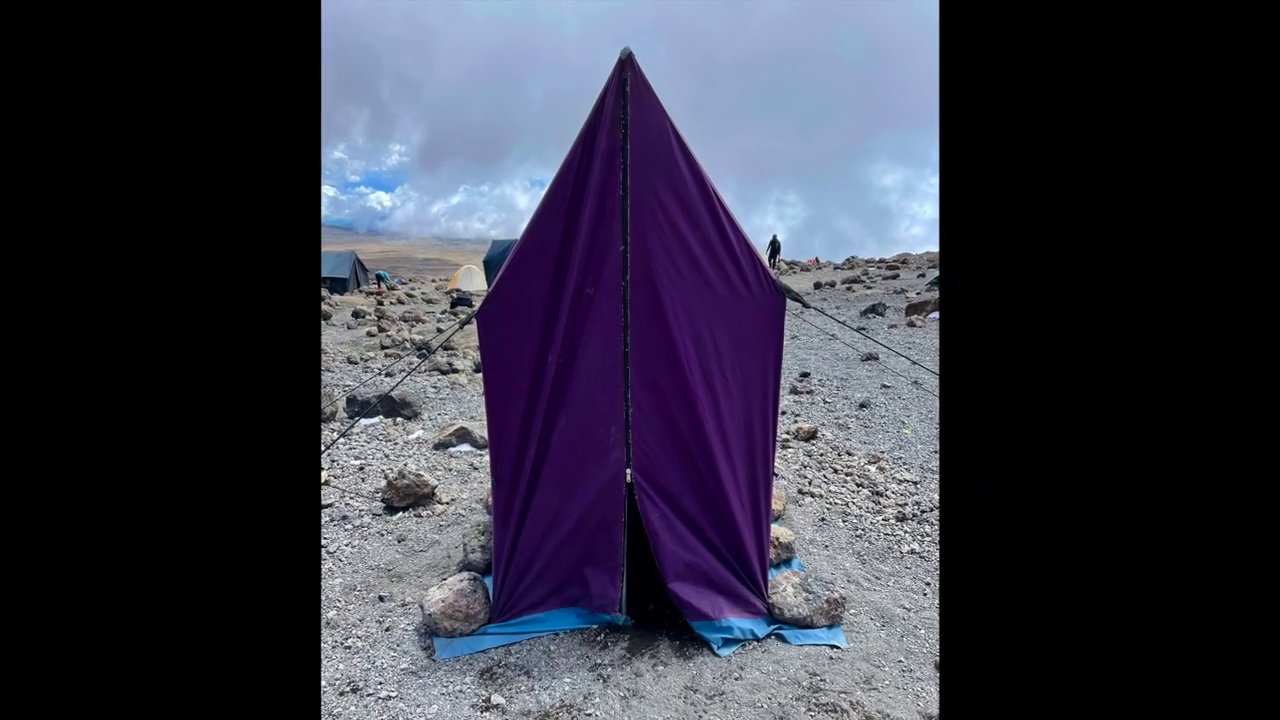
bathroom on mountain kilimanjaro
Bathroom on Mountain Kilimanjaro: What to Expect and How to Prepare Introduction One of the most common — and least discussed — questions from people
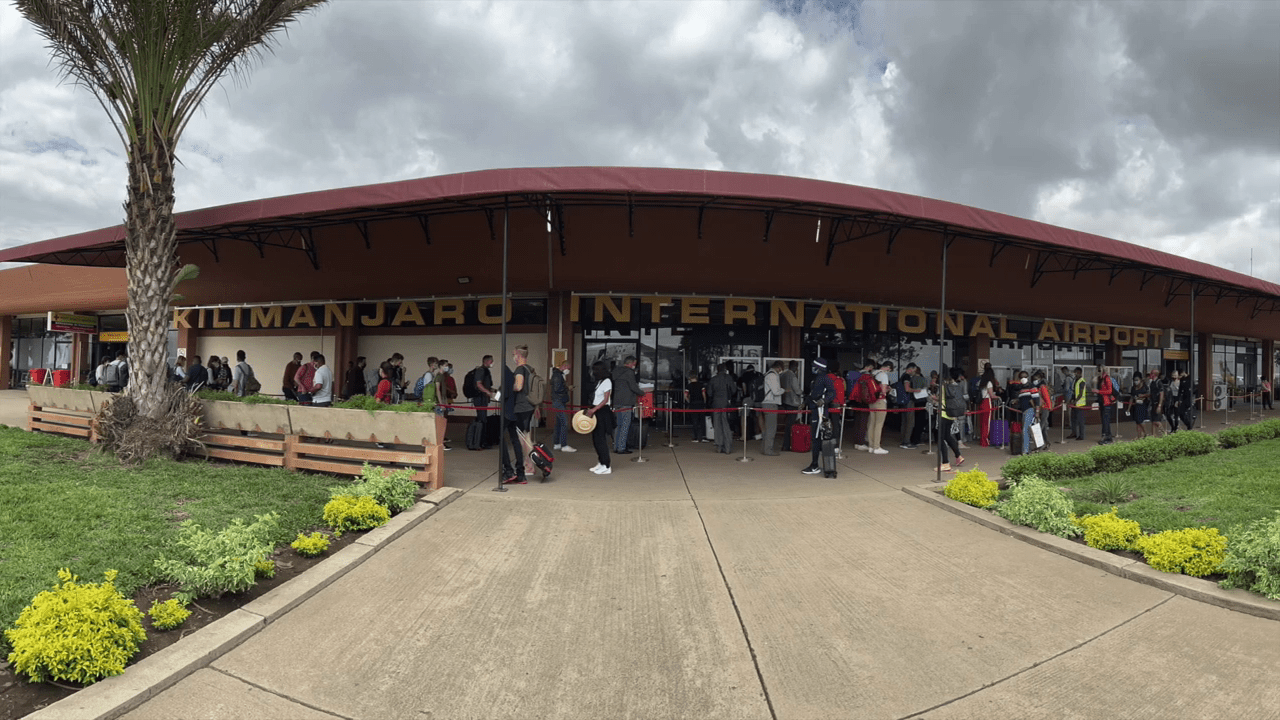
Are Guides Readily Available in Tanzania Without Prior Booking?
Are Guides Readily Available in Tanzania Without Prior Booking? Introduction: Should You Risk Climbing Without Pre-Booking? Climbing Mount Kilimanjaro is a dream for many adventurers.
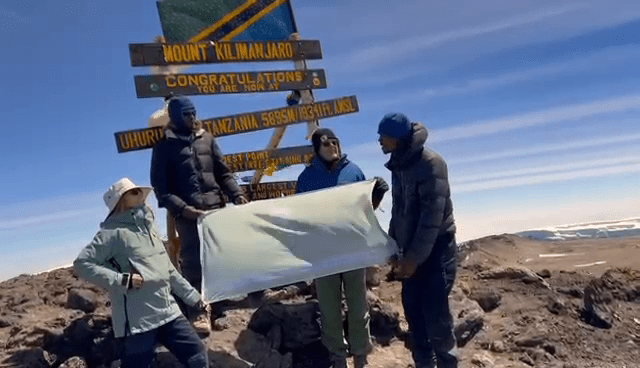
How Can I Find a Reliable Local Guide for My Kilimanjaro Expedition?
How Can I Find a Reliable Local Guide for My Kilimanjaro Expedition? Introduction: Why the Right Guide Is Key to Kilimanjaro Success Climbing Mount Kilimanjaro
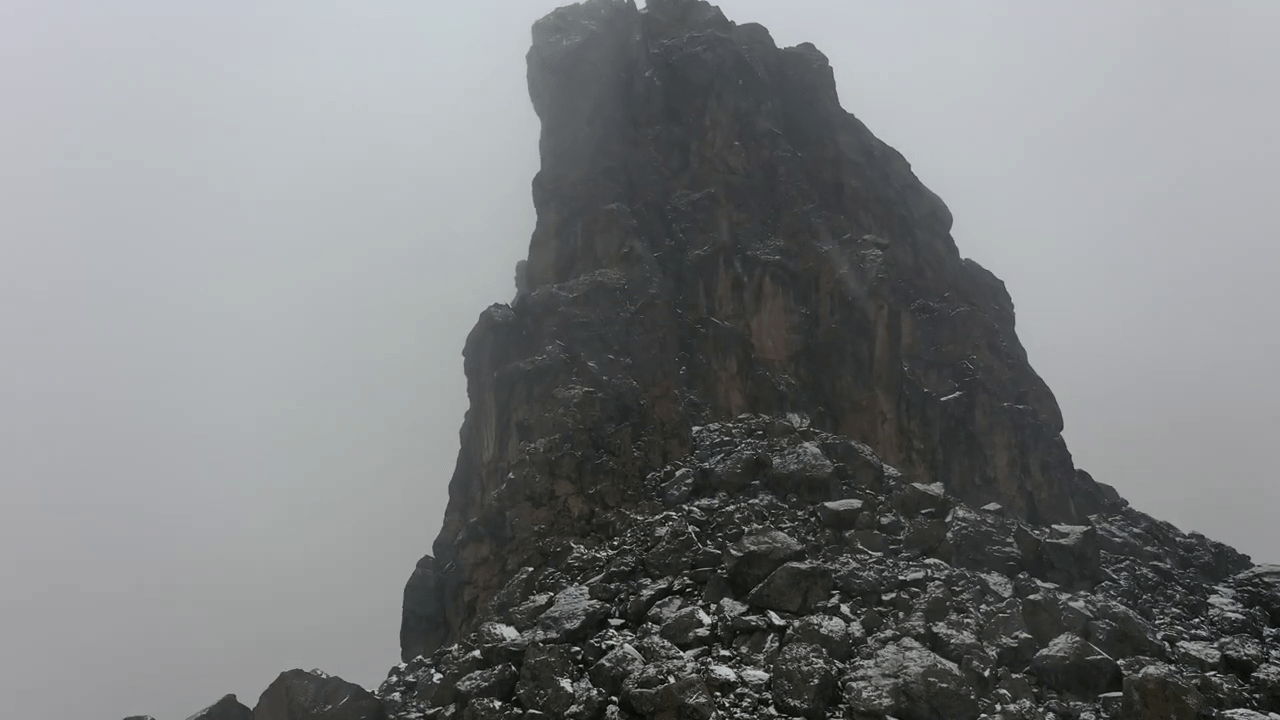
Is Climbing Kilimanjaro Dangerous for Individuals Without Mountaineering Experience?
Is Climbing Kilimanjaro Dangerous for Individuals Without Mountaineering Experience? Introduction: The Myth of Danger and Experience Many aspiring adventurers wonder if climbing Mount Kilimanjaro is
